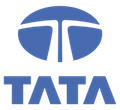After the Brexit vote and the election of Donald Trump, it seemed fair enough to expect—and perhaps hope—that 2017 would be a year of relative quiet. Not so. We’ve had swirling political chaos in the United States, the first bruising rounds of the Brexit haggle—and the small matter of a general election.
Reading this year’s entries for the Think Tank Awards, one theme emerged—the challenges posed by countries and sections of society digging themselves into trenches. Perhaps as a reaction against our interconnected world, the sense of difference seems to be heightening, dividing one group from another. The more we looked, the more we realised how many entrants were confronting the question of what happens once we’ve retreated into our silos. This is, perhaps, the most general problem of 2017—complicating the task of solving everything from tax evasion to climate change internationally, and of tackling poverty and security at home.
The US awards
In a busy Economics and Finance field, the Bipartisan Policy Center was lauded for its work on problems that are of interest on both sides of the aisle on Capitol Hill, notably infrastructure spending and the challenges of retirement. The Economic Innovation Group emerged as the runner-up. With roots in Silicon Valley, it is entirely fitting that this tank focuses on the problems caused by the over-concentration of economic dynamism within the US, in work that one judge called “grim and well-argued.” The winner was the Peterson Institute, for its excellent work on the economic threat posed by international disagreements over trade. It “comes out the winner,” one judge said, “for the importance and timeliness of its stance on trade—and the signs that the message is getting through.”
In Energy and the Environment, the Arctic Institute scored well, as did the Stimson Centre, whose scrutiny of the illegal trade in animal parts was particularly strong. The World Resources Institute did sobering work on the challenge of global food supply while the runner-up, Inter-American Dialogue, impressed the judges on US-Latin American energy investment in particular. But the winner this year was Climate Interactive. Their innovative use of interactive tools to model the effects of climate change has been influential within government.
In Social Policy, the Seven Pillars Institute was picked out for its insights into drug pricing, while the Committee for Economic Development caught the eye with its work on increasing the presence of women on boards of directors. The Centre for Data Innovation was ranked as the runner-up, on the strength of an “ambitious programme” which covered open government and the regulation of “smart” technologies. But the winner this year was New America, whose work on how training and job creation can answer the challenges of technology were, one judge wrote, “of the highest quality,” and had been deservedly “influential.”
In International Affairs, the Middle East Forum was picked out as an organisation with great potential. The Rand Corporation’s work on emerging strategic threats was a reminder of its deep knowledge, and Inter-American Dialogue was again impressive, emerging as the runner-up for a second time on the night, particularly for its examination of China-Latin America economic relations. The winner was Freedom House which has done excellent work in examining the encroachment of illiberal politics in Turkey, Venezuela, Russia and more. It approached the urgent problem of the threat to liberty in all these countries with what one judge called “compendious knowledge,” as well as “rigour and policy prescriptions [that] make it the point of reference within its area.”
The EU
In the Economic and Financial category, Istituto Bruno Leoni produced an eye-catching index of globalisation in European states. Rand Europe woke business and political leaders up with a fright, with its report “Why Sleep Matters,” which estimated that sleep deprivation costs the German economy €60bn a year in lost output. The Centre for Social and Economic Research was picked out for its work on VAT fraud, which, it calculates, costs Europe €160bn per year. The winner was Bruegel, an outstanding organisation that has carried out intensive work on Brexit.
In Energy and the Environment, the Hague Centre for Strategic Studies impressed on questions of hydrocarbons and security in the Gulf. The International Centre for Research on the Environment and the Economy’s was thought-provoking, especially on maintaining water supplies amid unreliable rivers. The Institute for European Environmental Policy caught the judges’ attention with its study of what Brexit could mean for European environmental policy. The Mercator Research Institute on Global Commons and Climate Change also stood out, and emerged as the runner-up—especially for its “Carbon Clock,” which plots emissions against global temperature increases. The winner was the Fridtjof Nansen Institute. Its continued specialisation in Polar and Russian politics illuminates a sensitive but poorly understood corner of international relations.
For work on Social Policy, the Bonn International Centre for Conversion was cited for its “clear and well-argued presentation of issues” including forced migration and the refugee crisis. The winner was SNS, whose work on labour markets, the judges noticed, did not shrink from difficult conclusions—particularly its analysis of how flexibility was crucial for absorbing migrant workers and protecting workers’ rights.
In International Affairs, the European Council on Foreign Relations was picked out by a judge for its “high level of analysis” on the strengths and weaknesses of a global liberal order, which is very much more in question these days, as well as revealing work on China’s increasing importance in world affairs. Carnegie Europe was the runner-up for its work on Europe’s security. The winner was the Casimir Pulaski Foundation, which judges picked out for its exemplary work on Eastern European affairs.
The UK
In the Economic and Financial category, the Official Monetary and Financial Institutions Forum—specialists on central banks—were saluted for “bringing fresh views to an important area of global macroeconomics.” Common Vision was commended for carving out “a distinctive space on the scene.” The Social Market Foundation provoked interesting thoughts on self-employment. The Centre for Cities was influential on metro mayors, and as a result emerged as the runner-up. But the winner was the Institute for Fiscal Studies, which maintained its trusted and “dominant voice on public finances” through the heat of a general election.
In Energy and the Environment, Bright Blue generated, well, bright ideas on low-emission zones in cities. The Centre for Policy Studies was also singled out for its work on re-regulation, and the New Economics Foundation was cited for its analysis of the importance of revitalising Britain’s coasts. The Royal United Services Institute caught the eye for what one judge called its “Meticulous and original work on… financial intelligence.” IPPR, however, took the runner-up spot, thanks to “work on London’s air pollution [which] was probably the most influential, catching the mood of the moment and directly influencing policy.” But the winner was Chatham House. Judges were extremely impressed with its new website dedicated to the trade in natural resources which is an innovative and useful tool for environmental economists.
In Social Policy, The Centre for Social Justice conducted, in the words of one of the judges, an “interesting and thorough investigation of homelessness and housing issues,” making “a solid contribution” to the national debate. Respublica also took on the question of the housing market, slanting its analysis towards the question of community involvement in planning. Work by the Education Policy Institute was impressive, especially its examination of young people’s mental health, as was the RSA’s work on inclusive growth, prisons, self-employment and the gig economy. But the clear winner this year was the Joseph Rowntree Foundation, which through a focus on poverty in the UK, offered a very strong analytical appraisal of social conditions in Britain.
In International Affairs, Policy Exchange was influential, especially through its “Britain in the World” project, which analysed Britain’s changing relationship with the US. The European Leadership Network’s shed light on the challenge posed by Russia, where, as one judge put it, “information can be difficult to acquire and verify.” The UK in a Changing Europe has been very influential, emerging as the runner-up for its work on Article 50. But the winner this year was the Centre for European Reform, which enlightened anyone interested on Britain’s negotiating position, the stance of the “other side” (the EU negotiators), and where the discussions are likely to head in the end.
The One to Watch award went to Inter-American Dialogue, for pushing the question of how the US relates to its neighbours.
The 2017 Think Tank of the Year Award went to The Joseph Rowntree Foundation, which married the analytical and campaigning traditions associated with the Rowntree name, approaching poverty with rigour, acumen and smart pragmatism.
The awards were kindly sponsored by TATA

Joseph Rowntree Foundation claim the Think Tank of the Year trophy, plus the customary “tank top for the top tank. Photo: Bob Fallon
Think Tank Awards 2017: Who won?
At our annual awards, held on 10th July, the big brains were focused on the dangers of division
July 14, 2017











